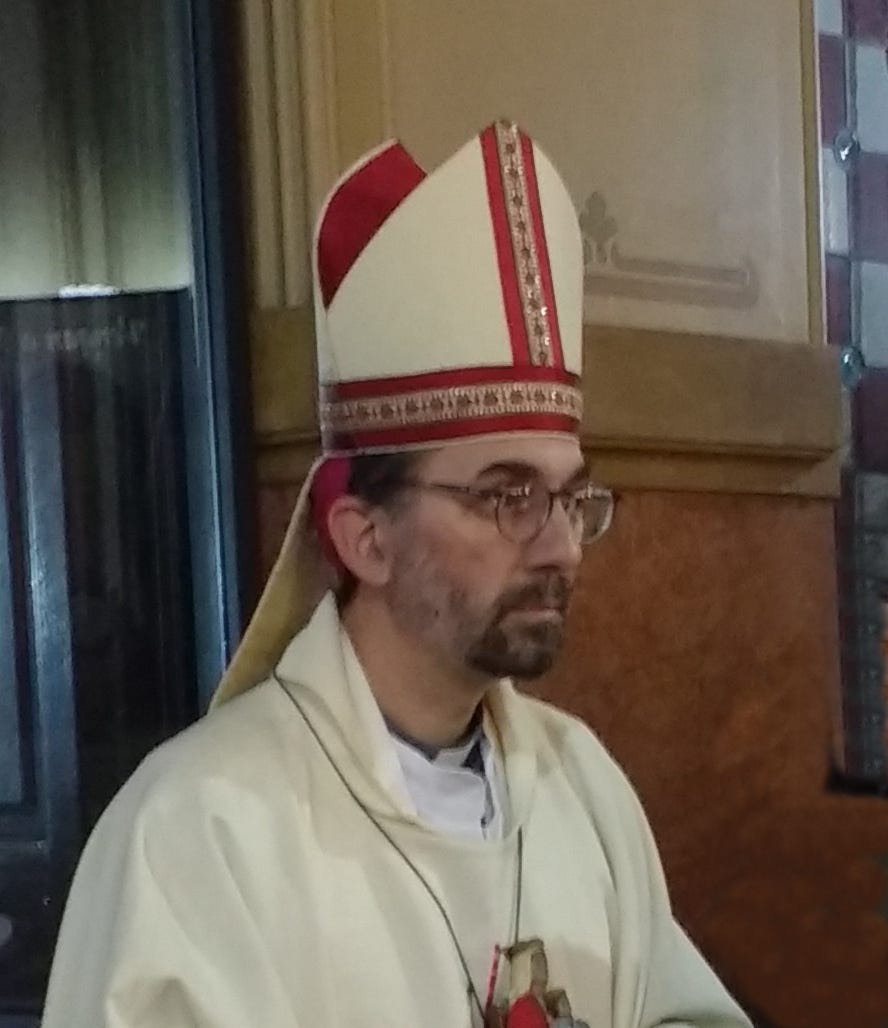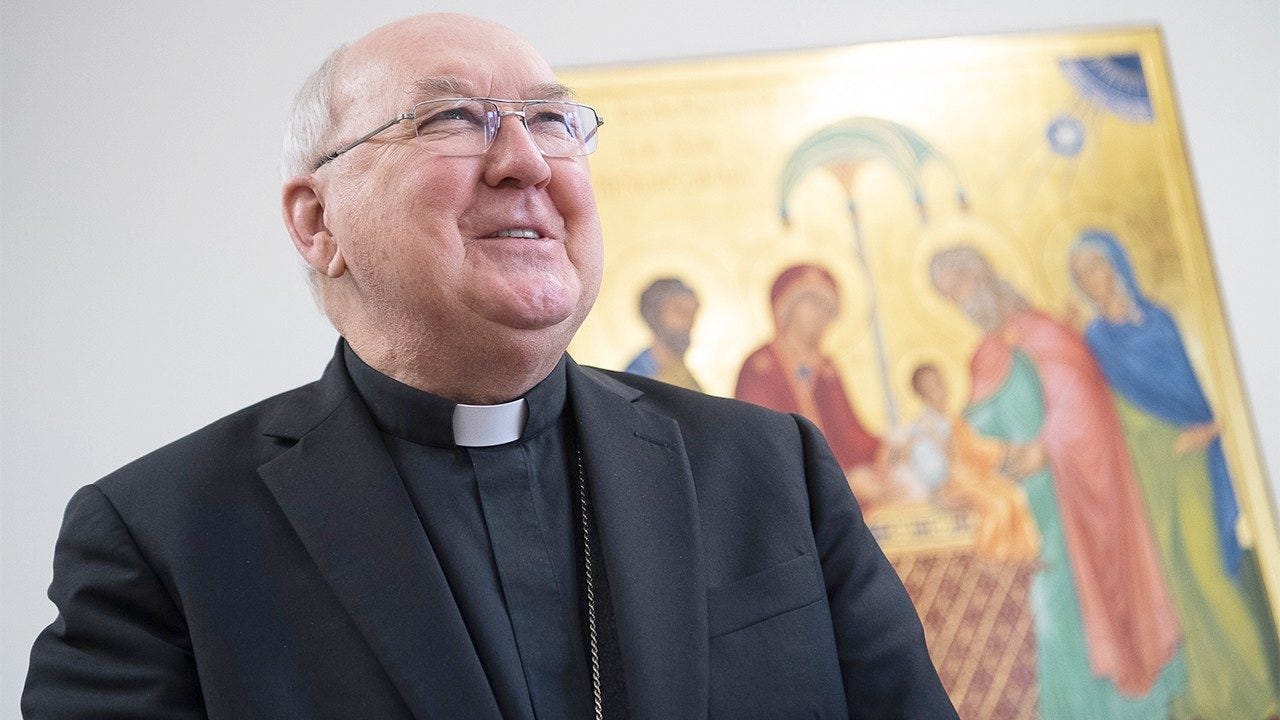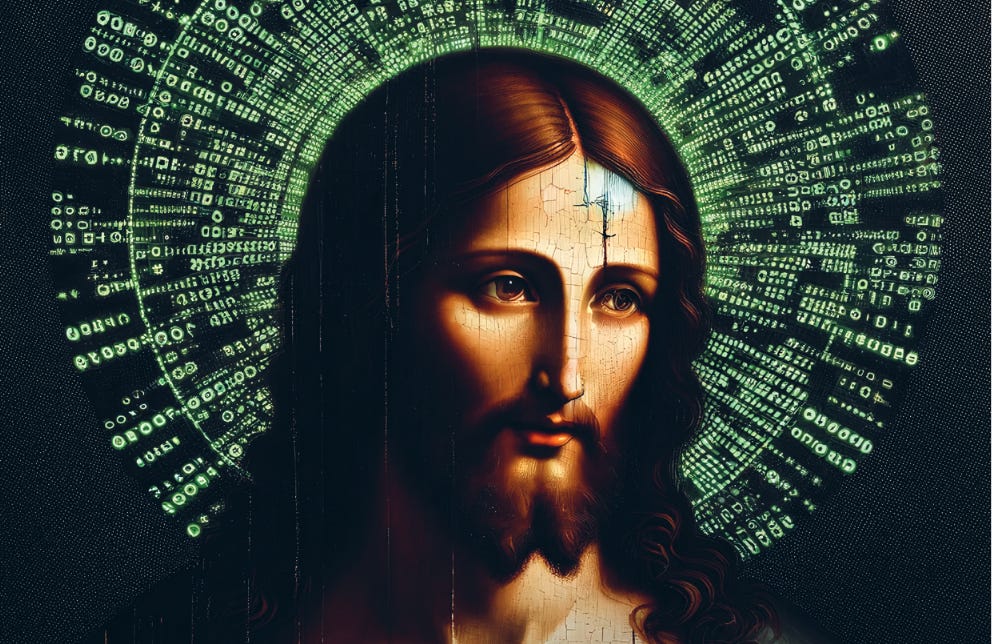After years of refusing to comment on the deteriorating human rights situation in China, the Holy See said Wednesday that Vatican officials are “concerned” following the arrest of Cardinal Joseph Zen, the emeritus Bishop of Hong Kong.
Zen is the first cardinal to be arrested since Cardinal George Pell in 2017. His detention by national security authorities, before being released on bail Wednesday, provoked the Vatican’s first public statement in some time on China affairs.
The Vatican’s chief spokesman, Matteo Brunei, told journalists Wednesday that the Holy See “is following the developments of the situation with extreme attention.”
But if Zen’s situation has Rome’s attention, what are officials thinking?
The cardinal’s arrest on charges of “colluding with foreign powers” presents itself a complicated problem for the Vatican in itself. But Zen’s arrest is also only a piece on the much bigger diplomatic board of Vatican-China relations.
The cardinal’s arrest Wednesday was a shock to much of the world’s media, but was not a surprise to many Catholics in Hong Kong. Several people close to Zen have told The Pillar that the 90-year-old cardinal’s status as a symbol of defiance to state power had long irked the Beijing government.
After the “election” of a stridently pro-Beijing new chief executive in Hong Kong last weekend, the timing of Zen’s arrest could well be intended to signal to pro-democracy activists and Church leaders alike that no one is untouchable.
Although the cardinal is now out on bail, Hong Kong authorities do not have a reputation for making arrests they do not intend to prosecute, or prosecuting cases they don’t intend to win, especially when it comes to “national security.”
Zen was arrested along with several other trustees of the 612 Humanitarian Relief Fund, a charity which helps political arrestees in Hong Kong. According to senior Catholics on the ground, it is widely believed that the authorities will charge that many of the 621 Fund’s donations come outside Hong Kong, and can be tied to non-state actors linked to the U.S. government.
If that proves to be the prosecution’s case, it’s possible the 90-year-old cardinal could be convicted for acting as a kind of foreign agent, or excused on grounds of age or ignorance of the details — depending on which way the authorities want to play it.
Given the latitude prosecutors have in how they pursue a case against Zen, and the influence of Beijing on their decisions, Zen could be seen in Rome - and Beijing - as an effective hostage to be deployed in China’s diplomatic dealings with the Vatican.
The 2018 Vatican-China agreement, renewed in 2020, is currently up for discussion between the two governments before it is set to expire in October and the signs have suggested that Rome has every reason to want to renegotiate the terms.
In theory, the deal granted the Communist Party a kind of say in the appointment of bishops for the mainland, clearing the way for vacant sees to be filled, and ending the schism between Church and the state-controlled Chinese Catholic Patriotic Association. It was also meant to offer a measure of stability and protection to faithful underground Catholics in China. And, it was hoped, clear a way for both sides’ mutual desire of formal diplomatic relations and the removal of the Holy See’s embassy in Taiwan back to Beijing.
But, in practice, the episcopal appointments process has not noticeably improved: dozens of dioceses on the mainland remain without bishops, and those which are appointed increasingly appear to be unilateral decisions by the Communist Party, who dare Rome to say them nay after the fact.
Meanwhile, faithful clergy, including bishops, on the mainland who refuse to acknowledge state supremacy over the Church and Communist Party doctrine over Church teaching, have been hounded and harassed, arrested and even disappeared.
In exchange for that, the Holy See has taken considerable criticism on the world diplomatic stage for its silence on the developing human rights crisis in China — declining to acknowledge, still less denounce, an ongoing genocide against the Uyghur people, saying instead that it reserves its engagement with China to private diplomatic contacts.
Heading into renegotiation for October, the signs have been that the Vatican might finally be ready to revisit what many see as a very bad deal for Rome, and for Chinese Catholics. Even the normally extremely circumspect Secretary of State, Cardinal Parolin, has said in recent weeks that he hopes to see the arrangement “tweaked” before it is renewed, and the signs have been that the Holy See is storing up its diplomatic powder ahead of talks.
In February, with a minimum of fanfare, the Vatican quietly transferred out its senior diplomats in both Hong Kong and Taiwan.
In the latter post especially, the Holy See has three possible options: leaving the role vacant, which would be the preference of Beijing; replacing the now-departed chargé d'affaires, resorting the status quo; or announcing the first full nuncio to Taiwan in decades — which would be taken as a rebuke in Beijing.
Leaving the diplomatic post in Hong Kong empty, on the other hand, would likely be more of a defensive move: the consulate’s archives were quietly moved out of the country more than a year ago in the wake of repeated cyber attacks and the arrest of two of its staff, religious sisters, on the mainland. Filling it, and doing so publicly, could be presented as a vote of confidence in the political situation in Hong Kong.
While Zen’s arrest may have been a long-planned goal of the authorities purely on its own terms, the timing is significant, and could be intended to signal to the Vatican that, even if it has decided it is on the wrong end of a bad deal, things can always get worse for local Catholics should Rome think about pushing back diplomatically.
As a result, it is unlikely that Rome will say much in public beyond its recent expressions of “concern” and “attention” — at least for now. Instead, the cardinal’s status and fate will likely become a crucial bargaining point in private diplomatic negotiations around the Vatican-China deal’s renewal.
Should Zen end up in prison, the Holy See will face a stark choice: denounce his conviction and defend the cardinal, or validate his imprisonment as a fair result according to the law of the land.
Defending Zen would almost certainly trigger a response from the Chinese government, and local Catholics would bear the brunt of the effects. But if Rome is seen to accept Zen being branded a criminal, either explicitly, or implicitly through silence, it could be taken as a clear signal to persecuted bishops across China that Rome is not in their corner and they’d better kow-tow to the Communist Party’s control of religion in the country.
That could be the biggest diplomatic coup Beijing could hope for.




